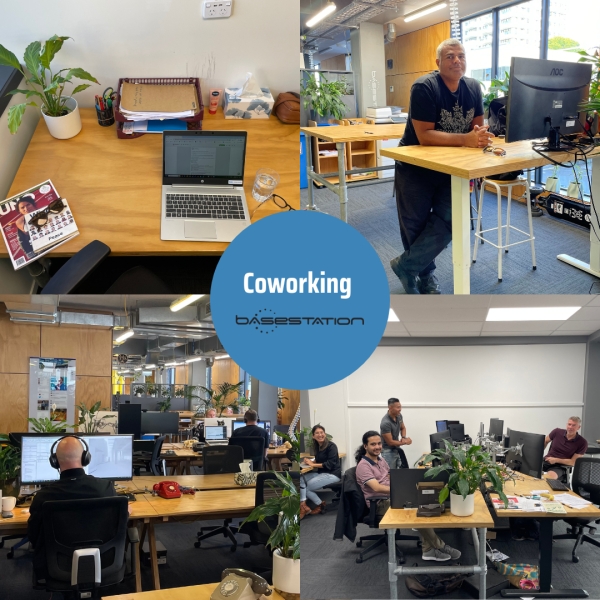One: Technology Development and Adoption
The report talks about tools and technologies enabling greater collaboration and communications and how this impacts the way businesses, teams and individuals work. The knock on effect of this has meant there is no longer a need for teams or businesses to be geographically close to one another, or their customers.
Alongside the growth of new technology-centric roles such as Virtual Assistants, SEO Managers, Social Media Managers and Content Creators - more traditional sectors such as finance, law and engineering have become more adaptable to remote and hybrid ways of working. The only restraints for these roles being a reliable power supply and high speed internet!
With advances in technology, many of which we are currently benefiting from already, remote and hybrid ways of working look imminent.
Two: The Green Transition
Regardless of whether you work for a large corporation, are self-employed or haven't joined the workforce yet, the growing climate crisis will affect you. In an opinion piece published in March this year, the World Economic Forum shares the view that:
“Policies, processes and technology [in reducing the impacts of the climate crisis] are crucial but are tools much like a car’s components. No matter how good the vehicle, its performance is ultimately in the hands of the driver, who chooses how to act - when to engage the accelerator and navigate the journey.”
The call to action in the article centres around leadership, motivation and courage for everyone to act and impact a sustainable green transition. Although this is a very holistic and values based perspective, it strikes a cord.
Solely focusing on the impact of remote and hybrid working on our carbon footprint; in a 2023 article by The Guardian, it shared research published in The Proceedings of National Academy of Science that:
“Working remotely two or four days a week reduced an individual’s emissions by up to 29% compared with on-site workers.”
Definitely food for thought!
Three: Macroeconomic conditions
According to Wikipedia, this refers to a branch of economics that deals with the performance, structure, behaviour, and decision-making of the economy as a whole. Similar to the ‘butterfly effect,’ but with economics - ie, the housing market bubble busts in the USA and a global recession follows!
During turbulent times when redundancies occur and layoffs are commonplace the increased rates of self-employment is notable; during the recent pandemic, it was estimated that in the US alone self employment increased by 1.4 million between 2020 - 2022. A trend that is reflected globally when times get tough.
So, how does this impact the coworking movement?
Good question!
The overarching shift to remote work and hybrid work has certainly impacted the coworking space sector. Even before the pandemic which normalised the new way of working there was a growing number of digital nomads in the arena.
The experience of remote working, for a lot of us, during the pandemic was the feeling of social isolation.
“People around the world experienced an increase in loneliness during the COVID-19 pandemic, which, although small, could have implications for people’s long-term mental and physical health, longevity and well-being, according to research published by the American Psychological Association.”
The above quote from the American Psychological Association highlights one of the downsides of working from home. Afterall, humans are naturally social creatures, it makes sense that we suffer if we do not connect with one another. For those that do work fully remote, coworking plays a big part in providing a sense of community and connection. The most common feedback we get from our residents at Basestation is that they enjoy and appreciate the sense of belonging and daily interactions they have with one another.
Coworking spaces also play a key role in the green transition - they are all set up for people to move in straight away - no need for costly office fitouts! At Basestation we offer:
- Hot desks for residents to use as and when they need them
- Permanent desks if you’re likely to be more regular and need some continuity
- Single and double offices for more privacy or time on calls
- Bigger office spaces to accommodate larger teams and satellite teams
We also offer a number of shared spaces including meeting rooms, modern kitchens and a private courtyard on the ground floor.
Being located in the centre of Tauranga, there are a number of public transport routes and cycleways close by which our residents use to commute between home and work.
One of the companies based here, GoTo Car Share - offers EVs for hire by the hour. This service is used by a number of the residents to get to client meetings that are in different parts of town.
At Basestation we also have a number of initiatives in place to be as sustainable as possible.
Basestation is known for supporting and connecting self-employed people including freelancers, contractors, small business owners and digital nomads.
If you are interested in trying out coworking at Basestation, get in touch via email: info@basestation.nz or pop in and visit us at 148 Durham Street, Tauranga. We are open 8:30am - 5pm Monday - Friday.
If you’ve never hot desked with us before, why not join us for our next Open Day 12th September - you can book a hot desk for FREE for the whole day! We have a monthly Open Day on the second Thursday of every month.

